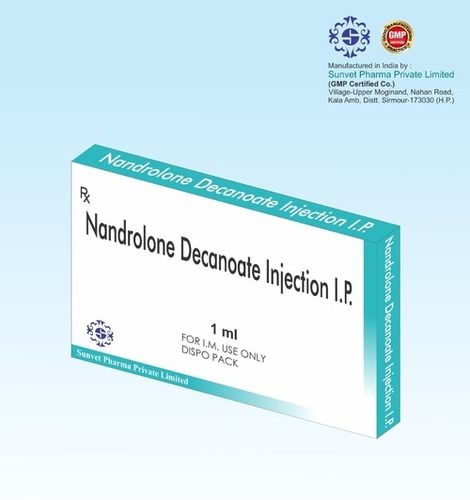Nandrolone Decanoate Dosage For Joint Pain

The use of nandrolone decanoate, an anabolic steroid, for joint pain relief is a topic of ongoing discussion and debate within both the medical and bodybuilding communities. While some individuals report significant pain reduction, its use for this purpose is largely off-label and carries potential risks and ethical considerations.
This article aims to explore the current understanding of nandrolone decanoate's impact on joint pain, examining the available research, potential mechanisms of action, and the associated risks. It will also delve into the ethical implications and the perspectives of medical professionals on this controversial practice.
The Allure of Nandrolone Decanoate for Joint Pain
Nandrolone decanoate, often sold under the brand name Deca-Durabolin, is a synthetic anabolic-androgenic steroid (AAS) derived from testosterone. It's primarily prescribed to treat conditions such as anemia, osteoporosis, and muscle-wasting diseases.
Anecdotal reports and some limited studies suggest that nandrolone decanoate may alleviate joint pain. This purported benefit stems from its potential to increase collagen synthesis, enhance nitrogen retention in muscle tissue, and promote the production of synovial fluid, which lubricates joints.
Proposed Mechanisms of Action
The exact mechanisms by which nandrolone decanoate might reduce joint pain are not fully understood. However, several theories have been proposed.
One key theory revolves around its impact on collagen synthesis. Collagen is a crucial protein for maintaining the structural integrity of cartilage, tendons, and ligaments.
Increased collagen production could potentially repair damaged tissues within the joints, leading to reduced pain and improved function. Another potential mechanism is the increase in synovial fluid production, which cushions and lubricates the joints, thereby minimizing friction and pain.
The Risks and Side Effects
Despite the potential benefits, using nandrolone decanoate for joint pain carries significant risks. Anabolic steroids are associated with a wide range of side effects, some of which can be serious and irreversible.
Common side effects include acne, hair loss, and changes in libido. More severe risks include cardiovascular problems, liver damage, and psychological effects like mood swings and aggression.
In women, nandrolone decanoate can cause masculinizing effects, such as voice deepening, increased facial hair growth, and menstrual irregularities. The long-term effects of steroid use are still not fully understood, making it crucial to weigh the risks against any potential benefits.
Ethical and Legal Considerations
The use of nandrolone decanoate for non-medical purposes, such as athletic enhancement or pain relief without a valid prescription, is often illegal and considered unethical. Sporting organizations typically ban anabolic steroids due to their performance-enhancing properties and potential health risks.
Medical professionals generally advise against using anabolic steroids for joint pain unless other treatment options have failed and the benefits clearly outweigh the risks. Self-medicating with nandrolone decanoate can be dangerous and is strongly discouraged.
The Medical Perspective
The medical community remains cautious about prescribing nandrolone decanoate solely for joint pain. Alternative treatments, such as physical therapy, pain medication, and corticosteroid injections, are typically preferred as first-line options.
Dr. Emily Carter, a rheumatologist at the University Hospital, stated, "While some patients may experience temporary pain relief with nandrolone decanoate, the potential risks associated with its use outweigh the benefits in most cases. We prioritize evidence-based treatments with established safety profiles."
Further research is needed to fully understand the potential benefits and risks of nandrolone decanoate for joint pain. Well-designed clinical trials are necessary to determine the optimal dosage, duration of treatment, and long-term effects.
A Word of Caution
Individuals considering using nandrolone decanoate for joint pain should consult with a qualified medical professional. They can assess the individual's medical history, evaluate the potential risks and benefits, and recommend the most appropriate course of treatment.
Ignoring medical advice and self-administering anabolic steroids can have serious consequences. It is essential to prioritize one's health and safety above all else.
The information provided in this article is for informational purposes only and should not be considered medical advice. Always consult with a qualified healthcare provider before making any decisions about your health or treatment.

 Website Images/503B/Injectables/2025-empower-pharmacy-nandrolone-decanoate-injection-200mgml-5ml-NS-294x490.jpg)
















